THE LONG WALK (2025)
A group of teenage boys compete in an annual contest where they must maintain a certain walking speed or get shot.
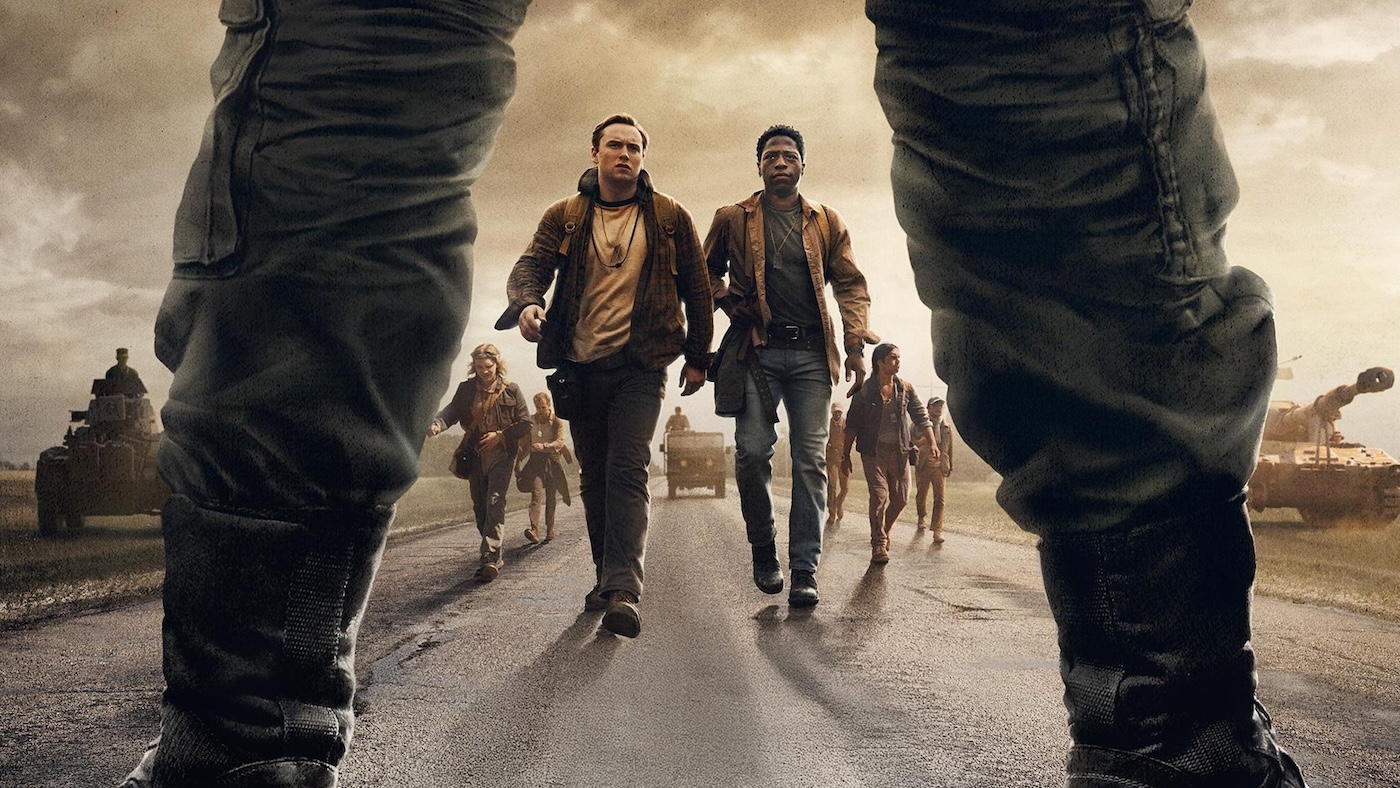
A group of teenage boys compete in an annual contest where they must maintain a certain walking speed or get shot.


The Long Walk has been a long-time favourite novel of Stephen King fans. It was honoured by critic Douglas Winter as a “bleak, science-fiction mirror of contemporary America” about 10 years before the discovery was made that King had even written it, as the original 1979 story was published under King’s often-used pseudonym, Richard Bachman.
In more recent times, The Long Walk has been unfavourably compared to Suzanne Collins’s The Hunger Games saga or Stephen King’s other dystopian story, The Running Man. However, this film, brilliantly directed by Francis Lawrence, outshines either of Lawrence’s own earlier Hunger Games adaptations and certainly shines brighter than the Arnold Schwarzenegger-starring Running Man (1987)—although that adaptation is still great fun. Lawrence’s interpretation of The Long Walk asks us to do something we’re usually loath to do: take a good, hard look at ourselves.
The film follows the plot of the book fairly closely, with some notable differences. Our main character, Ray Garraty (Cooper Hoffman) is one of 50 young men whom have “volunteered” to be part of ‘The Long Walk’, a 50-year-old tradition in a dystopian version of America. The rules of the walk are simple: maintain a speed of three-miles per hour or die. A large cash prize and one wish are promised to the young man who outlasts all 49 of his compatriots.
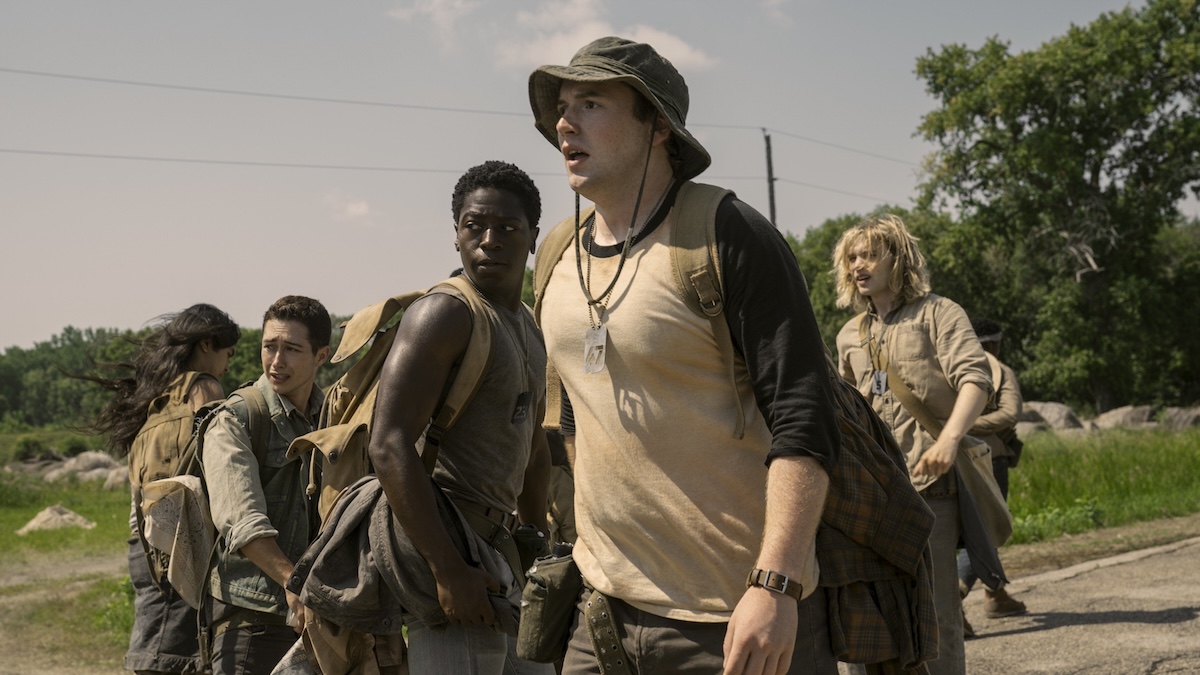
Unlike in The Hunger Games, the contestants on The Long Walk don’t fight against each other. Indeed, a level of respect, mutual admiration and even friendship blossoms among the young men while walking for their lives. The camaraderie is showcased beautifully by Ray’s relationship with Pete McVries (David Jonsson). Though Pete has had a difficult life, he refuses to let his troubles harden him and looks for the beauty in every moment. The juxtaposition of Ray’s cynical world view and Pete’s hopeful one creates an intriguing and very moving brotherly dynamic that guides us through the film.
The original intent for the novel was to illustrate the horrors of the Vietnam War. Francis Lawrence has paid homage to that inspiration in telling details, including boys reading magazines straight out of the late-1960s, camouflage and military clothing for all the young men, and even the oppressive heat on the walk.
Though these elements cause sensitive viewers to think about that late-’60s and early-1970s American era, the metaphor’s not so blatant as to detract from the true message of the film. In the end, the movie is about our traditions and systems and what we’re willing to endure and sacrifice to keep them in place. It’s not only about the Vietnam War but about war in general and what it can do to the young people who are caught up in it.
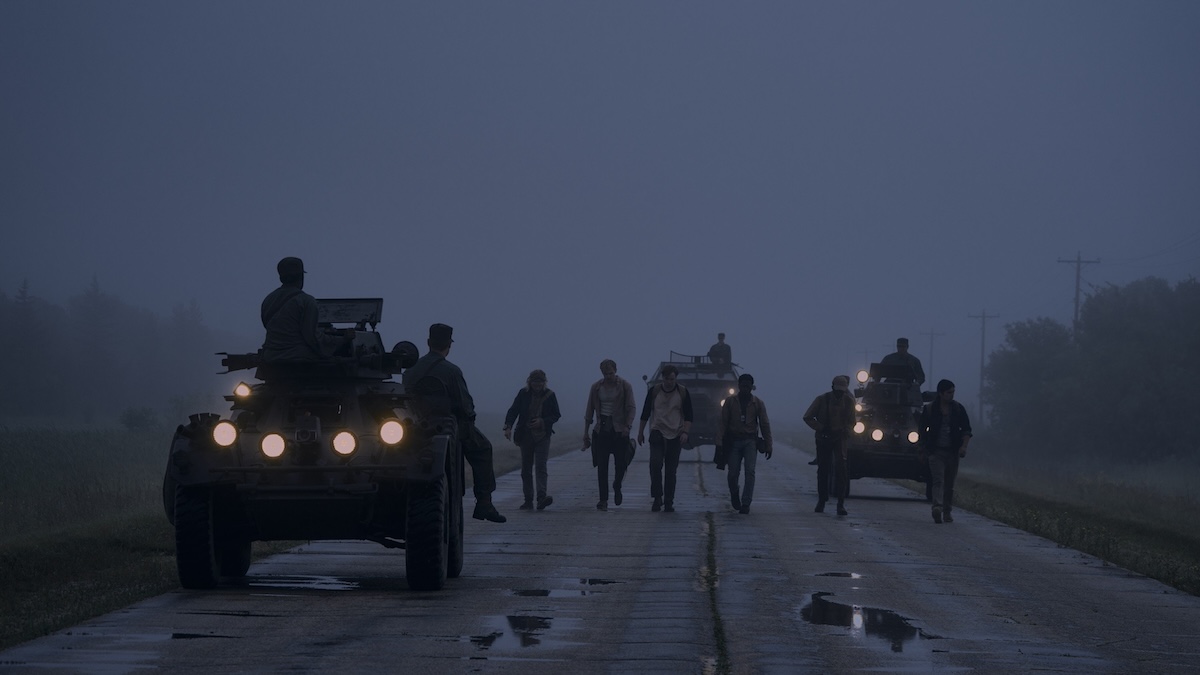
There are many moments in the film that my American Navy veteran husband found “traumatising”, and I caught him sniffling more than once as the movie went on. In the end, he believed it was a beautiful and necessary tribute to young men and women who are, essentially, forced into a system that often strips them of their humanity or causes them to lose their minds.
While all the young men in the film amplify the proceedings with beautiful performances (David Jonsson’s a particular stand-out), it’s telling and appropriate that the screenwriter JT Mollner and director Francis Lawrence (I Am Legend) received top billing on the posters for the film.
In an era where dialogue’s often diluted to clever quips between action sets, this poignant and delicate script is a rare gem. The dialogue is never cumbersome, always necessary and almost always poignant. The only slight criticism I have in the screenplay is an unnecessary ending soliloquy by The Major (Mark Hamill) who oversees The Long Walk.
While Mark Hamill does an excellent job with this jingoistic, villainous character, the lines he dishes out to the winner at the end seem perfunctory and offer the audience no new information. That might be an issue for the editor to sort out, rather than the writer.
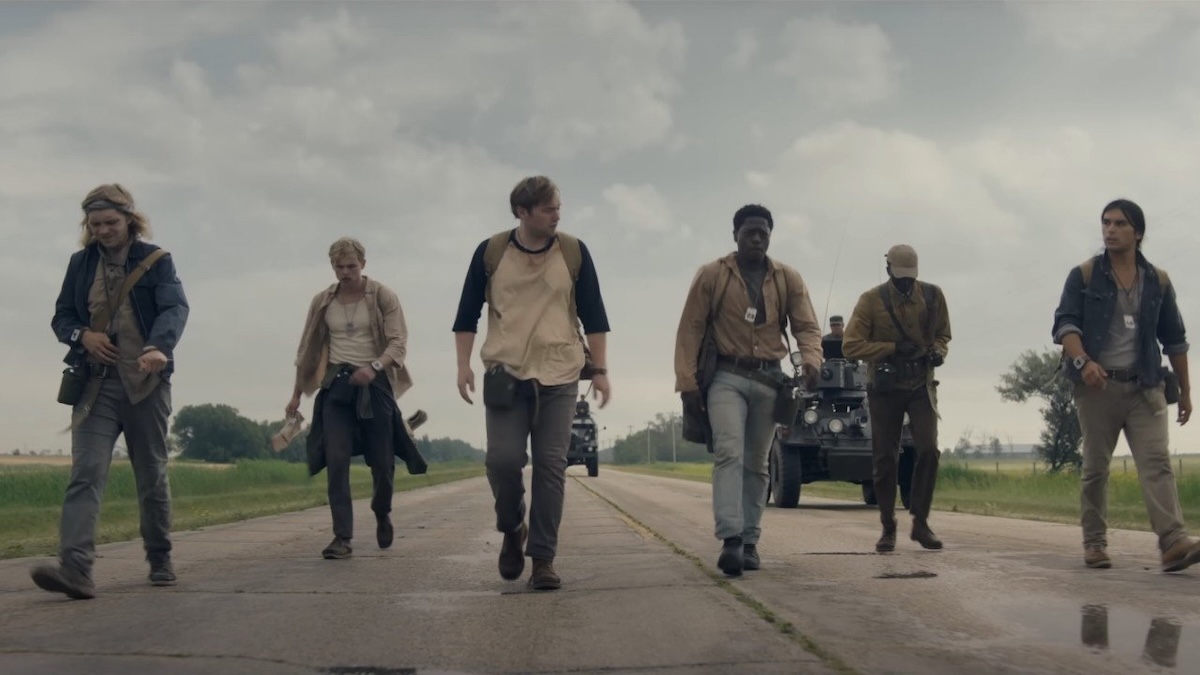
That, however, is the only hiccup I see in this near-perfect film. The performances by our main quartet of boys who befriend each other on the long walk, Hank Olsen (Ben Wang), Art Baker (Tut Nyuot), along with David Jonsson and Cooper Hoffman, are better than good. Ben Wang, who plays a superstitious and fast-talking New Yorker, is quickly becoming one of my favourite young actors. Likewise, Tut Nyuot manages to do something rarely done in Hollywood: make a religious character relatable and likeable. So often religious characters are used as uppity foils to the heroes or Bible-toting fanatics. Luckily, that’s not the case here. It is, in part, due to Mollner’s screenplay, but it’s also due in large part to Nyuot’s sensitive performance.
As stated earlier, Jonsson is the clear stand-out in the film. He gives his character both boyish playfulness and a wisdom beyond his years. Neither of these qualities are overdone, and they flow together naturally and with a clear purpose. Actors of any age have difficulty portraying such a wide range of emotion; David Jonsson’s one of those actors who makes it look easy. Similar to seeing a young Denzel Washington cry a single tear in Glory (1989), everyone in the audience can tell that this young man has a very bright future.
The fact that I came out of the theatre fully emotionally drained yet looking forward to seeing this film again, is also very telling. I’m pleased to say that The Long Walk has joined my list of favourite war films.
Though it does not deal with the military tactics, manoeuvres, or battles of an actual war, it clearly portrays the damage war inflicts on the souls of those who participate in it, those who watch helplessly from the sidelines, and even those who run it. It’s a condemnation not only of America, not only of the Military-Industrial Complex, but of humanity. Our need to win at all costs, to fight one another to the death, and to see other people fall so that we may rise is the true monster behind The Long Walk. And that is more terrifying than any creeping thing that jumps out at us in the night.
USA | 2025 | 108 MINUTES | 2.39:1 | COLOUR | ENGLISH

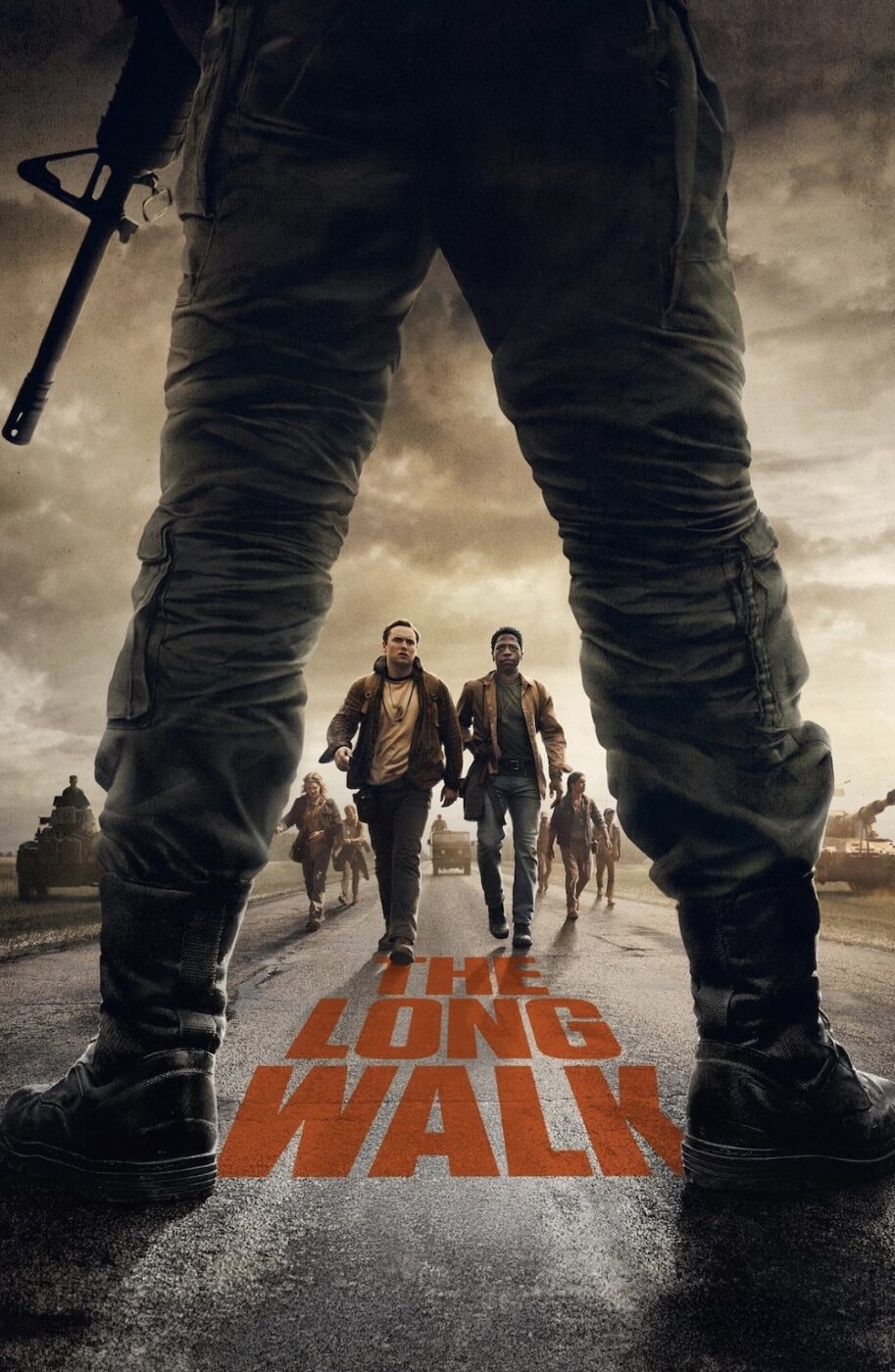
director: Francis Lawrence.
writer: JT Mollner (based on the novel by Stephen King).
starring: Cooper Hoffman, David Jonsson, Garrett Wareing, Tut Nyuot, Charlie Plummer, Ben Wang, Roman Griffin Davis, Josh Hamilton, Judy Greer & Mark Hamill.
